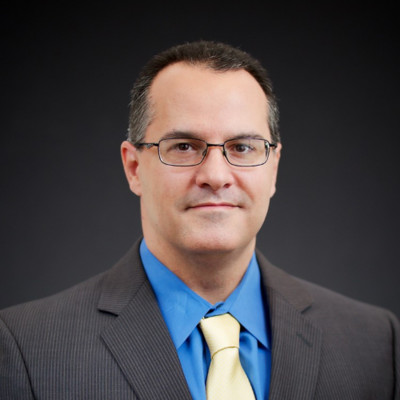
Ronald J. Rahaim
- Courses6
- Reviews20
- School: Oklahoma State University
- Campus:
- Department: Chemistry
- Email address: Join to see
- Phone: Join to see
-
Location:
Stillwater, OK - Dates at Oklahoma State University: December 2014 - April 2018
- Office Hours: Join to see
Biography
Oklahoma State University - Chemistry
Resume
2001
Ph.D.
Organic Chemistry
Michigan State University
1994
B.S.
Chemistry
Michigan State University
•Planning and organizing the ACS OSU chapter to perform hands on chemistry demonstrations for K-12 students at three events yearly. \n•Performed chemistry demonstrations at the Women in Science Conference for 900 middle and high school girls for the past five years in a row\n•Performed chemistry demonstrations for 500 middle school students at the OSU Women’s Basketball team’s Kid Day for the past four years in a row\n•Performed chemistry demonstration for 500 preschool to 5th grade youths at the Oklahoma Science Museum on chemistry day for the past four years in a row \n
OSU ACS Student Chapter
Chromatography
Spectroscopy
Lifesciences
Organic Synthesis
Cancer
HPLC
Science
Drug Design
Biochemistry
Purification
Catalysis
LC-MS
Drug Discovery
Chemistry
NMR
Organometallic Chemistry
NMR spectroscopy
Mass Spectrometry
Medicinal Chemistry
Organic Chemistry
Palladium-Catalyzed Silane/Siloxane Reductions in the One-Pot Conversion of Nitro Compounds into their Amines
Hydroxylamines
Amides
Sulfonamides
and Carbamates
Palladium-Catalyzed Silane/Siloxane Reductions in the One-Pot Conversion of Nitro Compounds into their Amines
Hydroxylamines
Amides
Sulfonamides
and Carbamates
Nickel catalyzed deoxygenative cross-coupling of benzyl alcohols with aryl-bromides
Pd-Catalyzed Silicon Hydride Reductions of Aromatic and Aliphatic Nitro Groups
Room Temperature Dehalogenation of Chloroarenes by Polymethylhydrosiloxane (PMHS) Under Palladium Catalysis
Regioselective Synthesis of Enones via a Titanium Promoted Coupling of Unsymmetrical Alkynes with Weinreb Amides
Zinc-Catalyzed Silylation of Terminal Alkynes
Casein Kinase 1δ Dependent Wee1 Degradation
Palladium-Catalyzed Hydrodehalogenations by Fluoride Activated PMHS
Titanium-Promoted Cross-Coupling for the Selective Synthesis of Polysubstituted
Conjugated Amides
Modular Synthesis of Tetra-Substituted Furans from Alkynes
Weinreb Amides
and Aldehydes
Sterically Directed Iridium-Catalyzed Hydrosilylation of Alkenes in the Presence of Alkynes
Casein Kinase 1δ is an APC/CCdh1 Substrate that Regulates Cerebellar Granule Cell Neurogenesis
Ni/Ti Dual Catalytic Cross-Coupling of Nitriles and Organobromides to Access Ketones
C-O Hydrogenolysis Catalyzed by Pd-PMHS Nanoparticles in the Company of Chloroarenes
Development of Highly Selective Casein Kinase 1δ/1ε (CK1δ/ε) Inhibitors with Potent Antiproliferative Properties
Ronald
Oklahoma State University
Broad Institute of Harvard and MIT
Scripps Florida
The Scripps Research Institute - Florida campus
Jupiter
Florida
Working on medicinal chemistry projects targeting cancer and neurological diseases by performing SAR and optimization to improve DMPK properties
and designing analogs to circumvent patent coverage while maintaining activity. \n \n-Designing and synthesizing dual inhibitors of TBK1/IKKi for the treatment of prostate cancer.\n\n-Analyzing high throughput screening data for inhibitors of neutral ceramidase (nCDase) for colon cancer treatment and prevention. Prioritizing hit series for compounds that are most amendable for follow-up studies. Performing initial rounds of SAR through the synthesis and purchase of analogs.\n\n-Optimizing a neuroprotective lead hit targeting protein misfolding in neurological diseases. \n\nPast Projects:\n-Prepared compounds for photoaffinity labeling of RNA targets and use in RNA binding assays.\n-Designed a benzimidazole library (solid phase and DEL) to target RNA
Staff Scientist
The Scripps Research Institute - Florida campus
I developed an alkyne connected solid support to merge diversity oriented synthesis (DOS) and target identification. I also developed a zinc catalyzed silylation of terminal alkynes.
Broad Institute of Harvard and MIT
Postdoctoral Researcher
While in the Roush group I worked on two medicinal chemistry projects. The goal of the first project was to probe the substrate binding pockets of the protein arginine methyltransferase (PRMT) isoforms for scaffolds that could lead to isoform-selective inhibitors. This was accomplished by attaching a diverse array of small molecules to a modified adenosine handle to probe the arginine binding pocket of the PRMTs. This strategy has afforded four new PRMT inhibitors that show selectivity for PRMT1 and/or PRMT5.\n\nIn the second medicinal chemistry project I performed SAR and lead optimization on a purine scaffold to increase potency and selectivity as an inhibitor of Wee1 degradation and mitotic entry. The initial lead hit was optimized from an IC50 of 650nM to an analog with an IC50 of 2nM. The analogs were determined to be selective inhibitors of the kinase CK1-delta
which resultantly inhibits Wee1 degradation
mitotic entry
and cerebellar granule cell proliferation. To help guide the progression of preparing new inhibitors
all analogs were subjected to an MTT assay against the human melanoma A375 cell line. Those compounds that exhibited significant anti-proliferative activity in this assay (EC50<200 nM) were taken forward to a core set of in vitro DMPK assays to assess their drug like characteristics. Through this process we developed a series of potent and highly selective CK1δ inhibitors with potent antiproliferative activity. This has led to analogs that have in vitro and in vivo PK properties suitable for use in xenograft studies of human cancers.
Scripps Florida
Oklahoma State University
Stillwater
OK
Research conducted in my group was in the area of organic synthesis
specifically focusing on organometallic methodology development directed towards drug discovery applications. The primary goal was the development of reagents
catalysts
and methodology from earth abundant metals to prepare complex molecules in a modular and economical (atom
redox
step) manner with diversity. The focus of which was to apply our technology to the preparation of small molecule libraries containing natural product features
and to the preparation of natural product-mimic libraries. The objective of which was the discovery on new pharmacological tools and lead-hits to address unmet medical needs in cancer
infectious
and neurological diseases. Research endeavors towards this goal focused on:\n\n•\titerative reactions of group IV metallacycles\n•\tnickel catalyzed cross-coupling of titanacycles\n•\tdual catalytic radical cross-couplings\n•\tnickel catalyzed cross-electrophile couplings of alcohols\n•\tdevelopment of new strategies for preparing and employing temporary tethers
Assistant Professor of Chemistry
us
WO 2013130461 A1 20130906
Possible Matching Profiles
The following profiles may or may not be the same professor:
- Ronald J Rahaim (100% Match)
Assistant Professor
Oklahoma State University - Oklahoma State University





